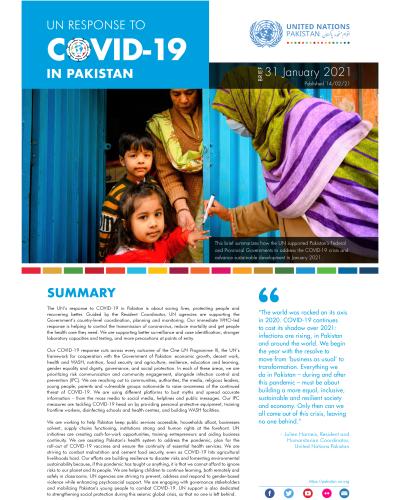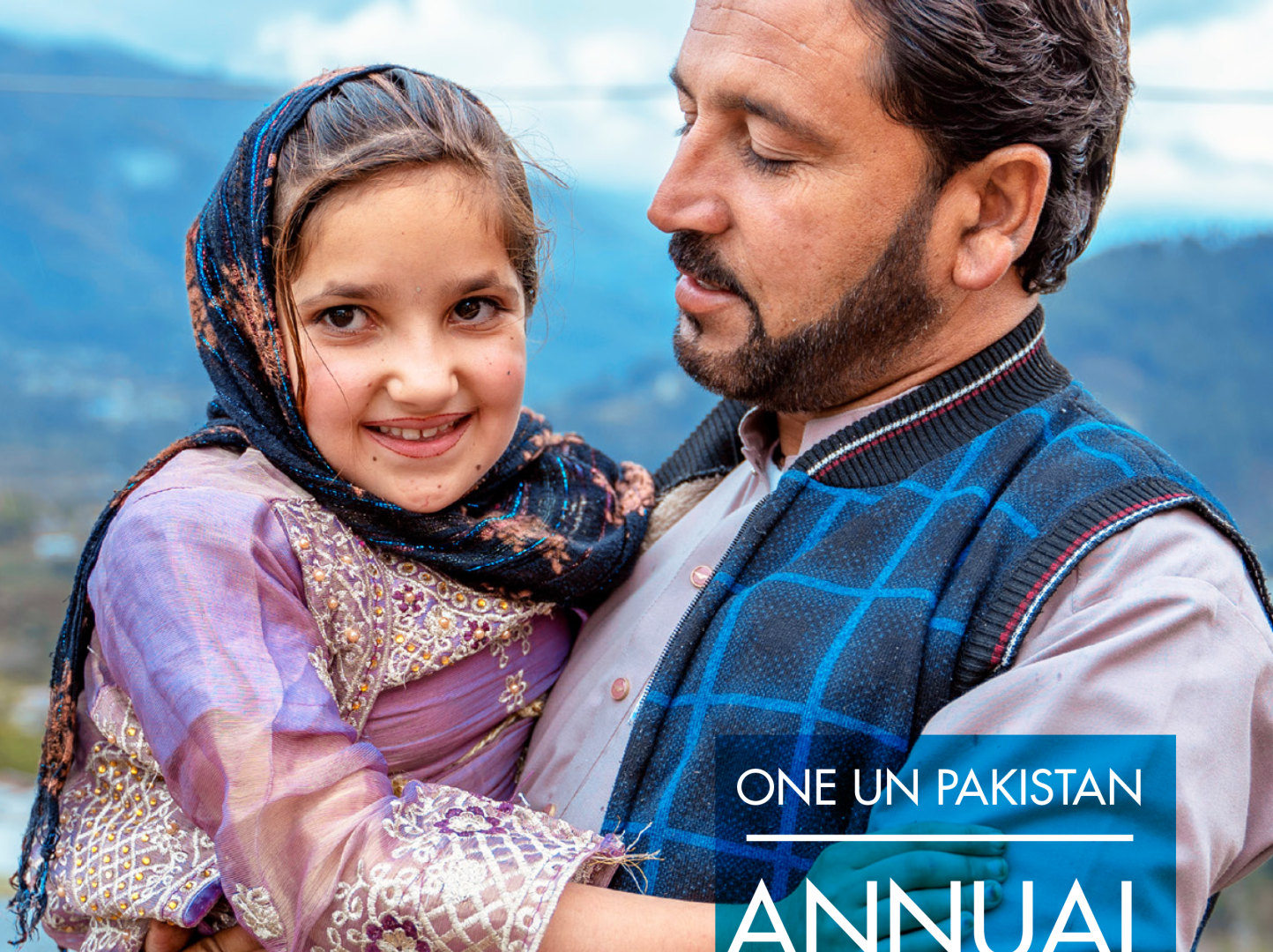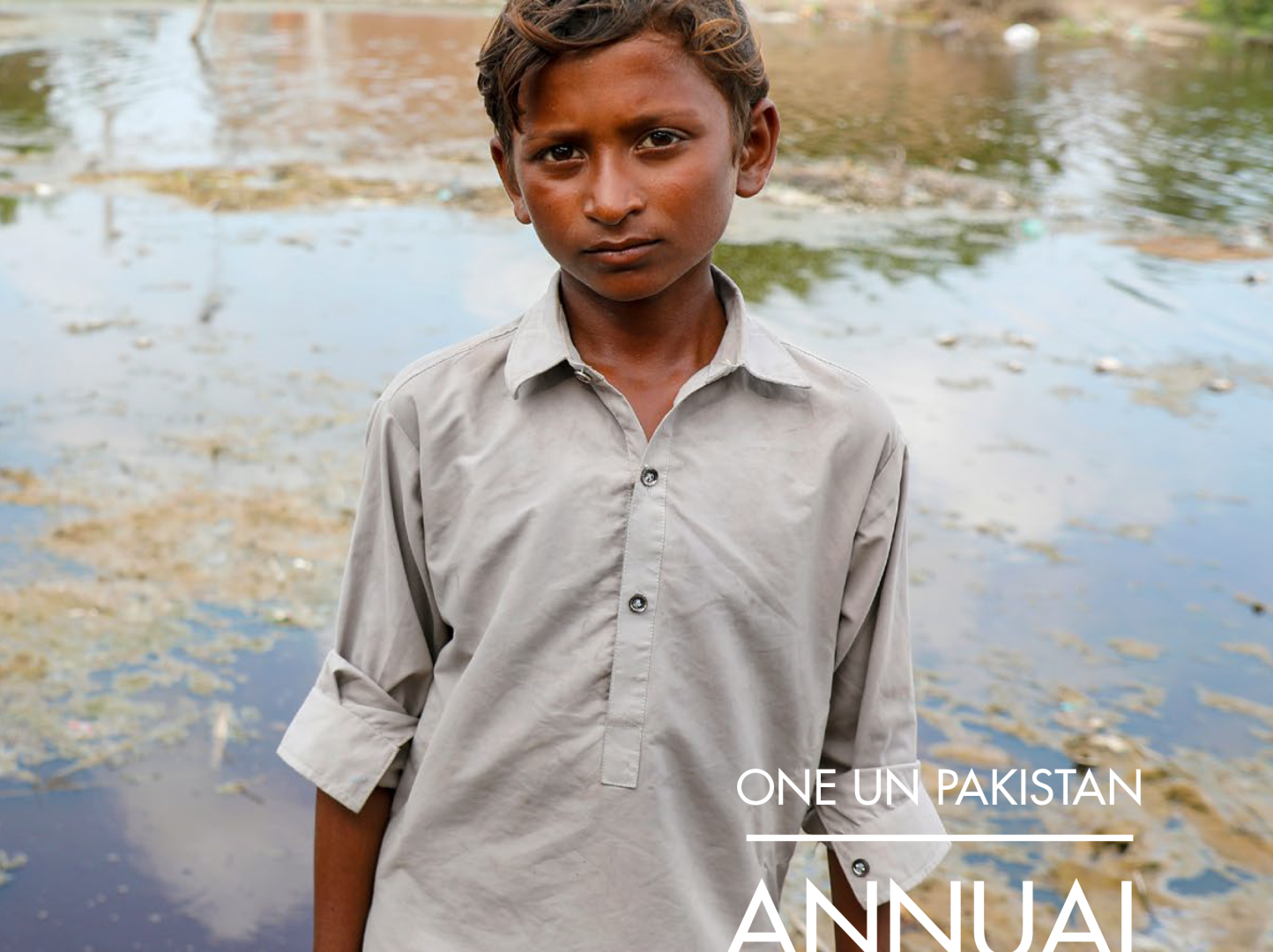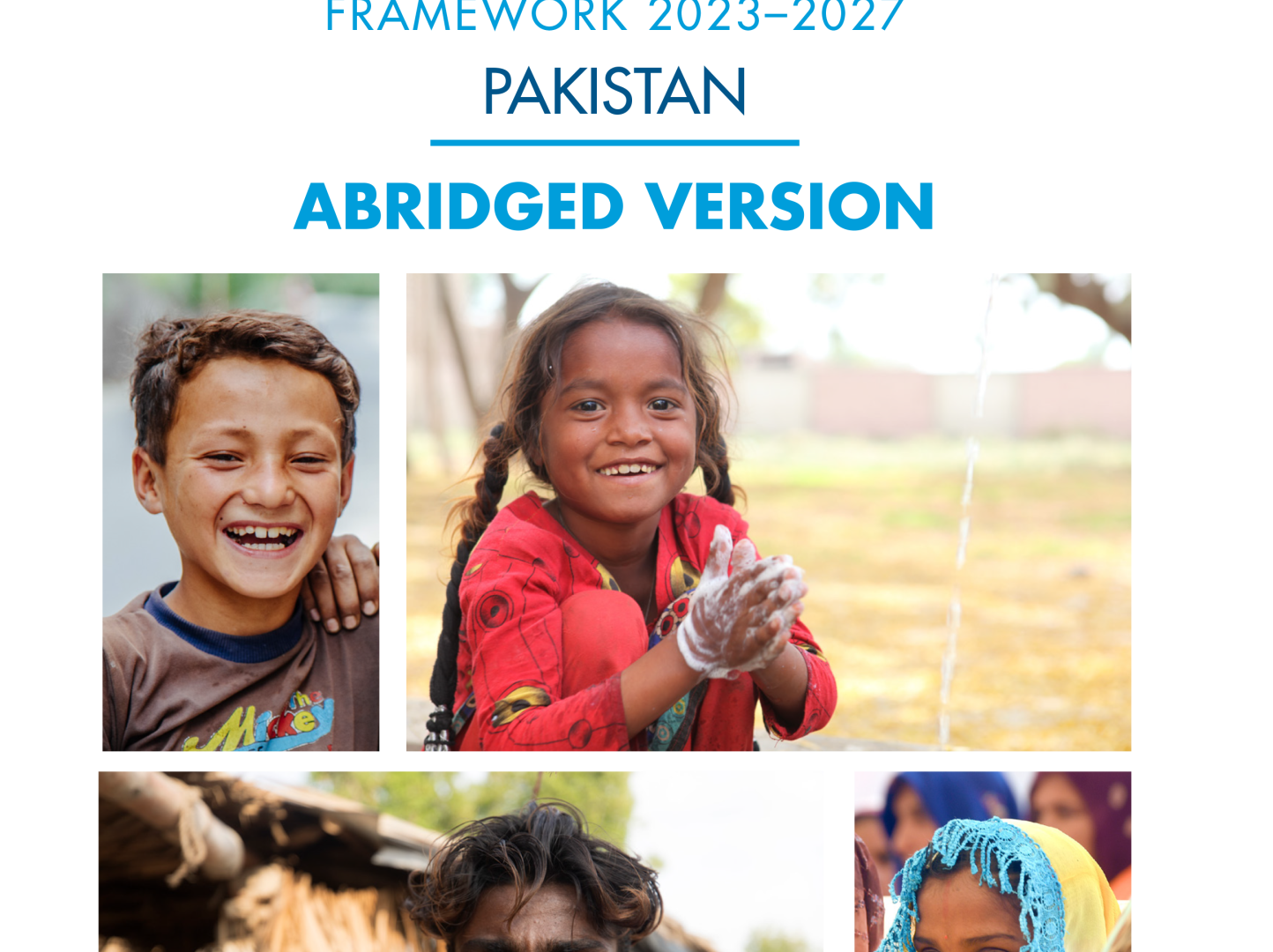Brief: United Nations response to Covid-19 in Pakistan, January 2021

The UN’s response to COVID-19 in Pakistan is about saving lives, protecting people and recovering better. Guided by the Resident Coordinator, UN agencies are supporting the Government’s country-level coordination, planning and monitoring. Our immediate WHO-led response is helping to control the transmission of coronavirus, reduce mortality and get people the health care they need. We are supporting better surveillance and case identification, stronger laboratory capacities and testing, and more precautions at points of entry.
Our COVID-19 response cuts across every outcome of the One UN Programme III, the UN’s framework for cooperation with the Government of Pakistan: economic growth, decent work, health and WASH, nutrition, food security and agriculture, resilience, education and learning,
gender equality and dignity, governance, and social protection. In each of these areas, we are prioritizing risk communication and community engagement, alongside infection control and prevention (IPC). We are reaching out to communities, authorities, the media, religious leaders, young people, parents and vulnerable groups nationwide to raise awareness of the continued threat of COVID-19. We are using different platforms to bust myths and spread accurate information – from the mass media to social media, helplines and public messages. Our IPC measures are tackling COVID-19 head on by providing personal protective equipment, training frontline workers, disinfecting schools and health centres, and building WASH facilities.
We are working to help Pakistan keep public services accessible, households afloat, businesses solvent, supply chains functioning, institutions strong and human rights at the forefront. UN initiatives are creating cash-for-work opportunities, training entrepreneurs and aiding business continuity. We are assisting Pakistan’s health system to address the pandemic, plan for the roll-out of COVID-19 vaccines and ensure the continuity of essential health services. We are striving to combat malnutrition and cement food security, even as COVID-19 hits agricultural livelihoods hard. Our efforts are building resilience to disaster risks and fomenting environmental sustainability because, if this pandemic has taught us anything, it is that we cannot afford to ignore risks to our planet and its people. We are helping children to continue learning, both remotely and safely in classrooms. UN agencies are striving to prevent, address and respond to gender-based violence while enhancing psychosocial support. We are engaging with governance stakeholders and mobilizing Pakistan’s young people to combat COVID-19. UN support is also dedicated to strengthening social protection during this seismic global crisis, so that no one is left behind.
















